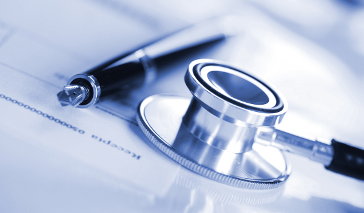Urology is a medical specialty focused on the urinary tract—the system responsible for creating and removing urine from the body, which includes the kidneys, bladder, ureter and urethra—and the reproductive system of men.
Problems in this "urogenital" system can develop as a result of aging, injury, illness, or birth defect. There are a few issues that are particularly common in the general population, and are good reasons to seek out a urologist. Some of the most frequently occurring conditions are listed below.
Benign Prostatic Hyperplasia (BPH)
In men, benign prostatic hyperplasia (BPH) refers to an enlarged prostate, a troublesome but rarely dangerous condition that can cause problems with urination. The prostate is a walnut-sized gland located by the neck of the bladder, and it surrounds the tube through which urine moves out of the body (the urethra). As a prostate swells, it places pressure on the urethra, causing it to narrow and, in some cases, close completely. Symptoms of the condition include:
- Difficulty initiating urination
- Weak urination stream
- Dribbling at the end of urination
- Urge to urinate
- Feeling of fullness in the bladder due to incomplete urine emptying
The exact cause of BPH is not known, although it often occurs as men age. Treatment for BPH can consist of medication to reduce the size of the prostate, minimally invasive procedures to reduce excess prostate tissue, or surgery to reduce or completely remove the prostate.
Painful Bladder Syndrome
Painful bladder syndrome—also known as interstitial cystitis—can occur in both men and women, although women are nine times more likely to develop it. PBS occurs when the wall of the bladder becomes inflamed. Left untreated, PBS can cause a build-up of scar tissue, which reduces the amount of space available for urine. Symptoms of PBS include:
- Pain in the pelvic area that worsens when the bladder is full or emptied
- Increased urge to urinate
- Blood or pus in urine
- Increased urination at night (nocturia)
- Constipation
The exact cause of PBS is unknown, but there are several associated risk factors, including gender, genetics, stress, autoimmune disorders (such as fibromyalgia), and a history of bladder problems. There is no cure for PBS and treatment typically focuses on reducing symptoms.
Kidney Stones
Kidney stones (calculi) occur in both men and women, and they form when minerals and other chemicals (e.g. uric acid and cystine) accumulate in the kidneys or along any part of the urinary tract. This can happen when there's an imbalance in electrolytes and water in the urinary system. In some cases, kidney stones cause no symptoms and pass through the urine without complications. If the kidney stone is large and cannot pass on its own, it can cause the following symptoms:
- Flank pain or groin pain
- Nausea and vomiting
- Blood in the urine (hematuria)
- An increased urge to urinate
- A burning sensation during urination
- Fever
Treatment for kidney stones depends on the size and location of the stone. Medication can be used to help reduce the size of the stone, allowing it to pass. Surgical removal of the stone may be needed if the stone is large and is blocking the flow of urine.
Urinary Tract Infections (UTIs)
Urinary tract infections, or UTIs, refer to an infection in any part of the urinary system, from the kidney (pyelonephritis) to the bladder (cystitis) to the urethra (urethritis). UTIs are caused when bacteria enter the urethra and grow unchecked, and if untreated the infection moves to the bladder and eventually the kidneys. Symptoms include:
- Increased need to urinate
- Passing only small amounts of urine
- Pain in the abdomen or pelvis
- Burning sensation during urination
- Cloudy urine
- Fever
UTIs can be prevented through proper hydration and hygiene. Certain risk factors increase the risk of UTIs, including being sexually active, menopause, diabetes, kidney stones, an enlarged prostate, and pregnancy. Treatment typically involves a course of antibiotics, which can effectively treat most UTIs.
References
Alan, R. (2012, September 1). Benign prostatic hyperplasia: BPH. Conditions & Procedures, 1-3.
Riley, J. (2012, October, 1). Interstitial cystitis: IC. Conditions & Procedures, 1-3.
Riley, J. (2012, September, 9). Urinary tract infection: UTI. Conditions & Procedures, 1-4.
Savitsky, D. (2012, October 1). Kidney stones—Adult. Conditions & Procedures, 1-4.


